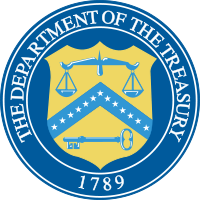CRS Report II: Iran’s Nuclear and Defense Programs
The following are excerpts from a recently published report by Kenneth Katzman, Specialist in Middle Eastern Affairs at the Congressional Research Service, on Iran’s foreign and defense policies.
Iran has pursued a wide range of defense programs, as well as a nuclear program that the international community perceived could be intended to eventually produce a nuclear weapon. These programs are discussed in the following sections.

 On October 7, the U.S. Treasury Department updated its frequently asked questions document on the lifting of U.S. sanctions as part of the nuclear deal. Regulations on dollar-denominated transactions between foreigners and Iran were relaxed.
On October 7, the U.S. Treasury Department updated its frequently asked questions document on the lifting of U.S. sanctions as part of the nuclear deal. Regulations on dollar-denominated transactions between foreigners and Iran were relaxed.